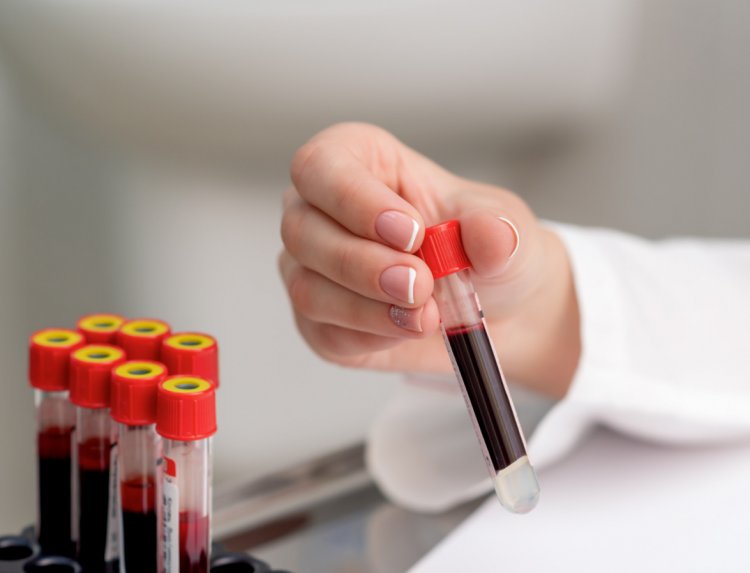Understanding CRP (C-Reactive Protein) Elevation: Causes, Symptoms, and Treatment
C-reactive protein (CRP) is a substance produced by the liver in response to inflammation in the body. It is a marker of inflammation and is often measured in blood tests. Elevated levels of CRP can indicate various underlying health conditions. In this article, we will delve into the causes, symptoms, and treatment options related to CRP elevation.

Causes of Elevated CRP
-
Infection: CRP levels can rise significantly in response to infections, including bacterial, viral, and fungal infections. The immune system releases CRP as part of the inflammatory response to combat pathogens.
-
Chronic Inflammatory Conditions: Chronic inflammatory conditions such as rheumatoid arthritis, lupus, and inflammatory bowel disease (IBD) can lead to sustained elevation of CRP levels.
-
Tissue Injury: Any form of tissue injury, whether from trauma, surgery, or chronic conditions like atherosclerosis, can trigger an inflammatory response and subsequently elevate CRP levels.
-
Autoimmune Disorders: Conditions where the immune system mistakenly attacks the body's tissues, such as multiple sclerosis and type 1 diabetes, can result in elevated CRP levels.
-
Obesity: Adipose tissue (fat cells) secretes proteins that promote inflammation, leading to higher CRP levels in obese individuals.
-
Cancer: Some cancers, particularly those associated with inflammation such as pancreatic and lung cancer, can cause elevated CRP levels.
Symptoms Associated with Elevated CRP
- Elevated CRP levels themselves do not cause symptoms. Instead, they serve as an indicator of underlying inflammation or disease.
- Symptoms will vary depending on the underlying cause of inflammation. For example, infections may present with fever, fatigue, and localized symptoms such as sore throat or cough.
- In chronic inflammatory conditions like rheumatoid arthritis, symptoms may include joint pain, stiffness, and swelling.
Diagnosis and Monitoring
- CRP levels are typically measured through a simple blood test. A high-sensitivity CRP (hs-CRP) test may be ordered to detect lower levels of CRP, which can be indicative of chronic low-grade inflammation associated with conditions like cardiovascular disease.
- CRP levels are often monitored alongside other markers of inflammation to assess disease activity and response to treatment.
Treatment Options
- Treatment for elevated CRP levels focuses on addressing the underlying cause of inflammation.
- Antibiotics may be prescribed for bacterial infections, while antiviral or antifungal medications are used for viral and fungal infections, respectively.
- Anti-inflammatory medications such as nonsteroidal anti-inflammatory drugs (NSAIDs) or corticosteroids may be prescribed for conditions like arthritis and autoimmune disorders.
- Lifestyle modifications, including weight loss, regular exercise, and a healthy diet, can help reduce inflammation and lower CRP levels.
- In some cases, targeted therapies or immunosuppressive medications may be necessary to control inflammation in conditions like rheumatoid arthritis or inflammatory bowel disease.
Elevated CRP levels are a valuable marker of inflammation in the body and can indicate underlying health conditions ranging from infections to chronic inflammatory diseases and even cancer. Timely diagnosis and appropriate treatment of the underlying cause are essential for managing elevated CRP levels and reducing the risk of associated complications. Regular monitoring of CRP levels can help track disease progression and treatment efficacy, ultimately improving patient outcomes.
In conclusion, understanding the significance of CRP elevation and its implications for health is crucial for healthcare professionals and individuals alike in managing inflammatory conditions effectively.
#CRP #CReactiveProtein #InflammationMarker #HealthMarkers #BloodTest #InflammatoryConditions #ChronicInflammation #AutoimmuneDisorders #ObesityInflammation #CancerMarkers #TreatmentOptions #LifestyleModifications #Healthcare #MedicalResearch #DiseaseManagement #HealthAwareness #WellnessJourney #PatientEducation #HealthcareProfessionals #MedicalScience
Disclaimer:
The information provided in this article is for educational purposes only and should not be considered medical advice. If you have any health concerns or are experiencing symptoms, it is important to consult with a healthcare professional, such as a doctor or clinic, for proper diagnosis and treatment. Always seek the advice of your doctor or other qualified health provider with any questions you may have regarding a medical condition. Do not disregard professional medical advice or delay in seeking it because of something you have read in this article.
What's Your Reaction?





















